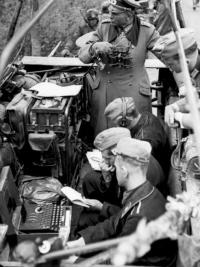
 On the
BBC breakfast news this morning, a 103-year old woman was interviewed about her memory of the Zeppelin attacking Walsall, West Midlands, during World War I. It’s part of the BBC’s World War At Home project which seeks to bring the events of 1914-1918 alive to people across the country, highlighting
what was happening in their region and their hometown. It has just launched but will be complete - with your help - by the end of 2018, and has been assisted and funded by the Imperial War Museums
and the Arts and Humanities Research Council.
On the
BBC breakfast news this morning, a 103-year old woman was interviewed about her memory of the Zeppelin attacking Walsall, West Midlands, during World War I. It’s part of the BBC’s World War At Home project which seeks to bring the events of 1914-1918 alive to people across the country, highlighting
what was happening in their region and their hometown. It has just launched but will be complete - with your help - by the end of 2018, and has been assisted and funded by the Imperial War Museums
and the Arts and Humanities Research Council.
I find oral history and local history fascinating and I would urge you to listen to the tales around you. If you have lived in the same place all your life, there will be stories that you just accept as “common knowledge” and probably assume everyone else knows it, too.
I disagree.
I’ve moved a lot. I grew up in Lincolnshire - the good old Bomber County of WWII - a childhood spent under the shadow of the Battle of Britain Memorial Flight. What, can’t everyone distinguish between the Lancaster, a Spitfire and a Hurricane? What, you mean you didn’t know the names of those three iconic planes?
One of our assumed pieces of knowledge was about tanks. We knew Lincoln was home to the tank. Now, it’s news here. We were also told that they were called “tanks” because they were disguised as mobile water tanks, and that was what was painted on the side of the vast transporters that were carrying them. I’ve done some digging and Wikipedia tells me that’s one possible theory but there’s no definitive answer.
There will be tales and stories where you live, that “everyone knows” - that maybe, beyond the county border, no one knows. Now is the time to start recording this. Get talking, on the internet if you can - we’ve got the best way of engaging with folks across the world, so use it as the magnificent resource it can be.
This was also brought home to me when the delightful Bedroom Books Facebook Page shared an article about Victorian slang “that ought to be revived.” It’s here on BuzzFeed and I was surprised to see that I had heard, in common speech, two of the phrases that the article writers claim have died out - neck-oil, and to tickle one’s innards. I have no doubt that people will read that article and recognise other regional phrases there.
While we’re now talking about language, let’s quickly return to WWI - where the Oxford English Dictionary is trying to gather phrases that began in the war. The appeal itself is at http://public.oed.com/appeals/
Knowing when a word came into first use is important - especially for historical novelists! I’ve been working with an author lately who has written a  fifteenth-century swashbuckler of a tale, and we’ve had some debate about how to reflect social status
of characters through speech without descending into “okay mate let’s rock and roll” (no, that’s NOT in the book, it’s an example!) One phrase that was in the narrative that caught me was “let’s see
how it pans out” - I knew it was slang, and it didn’t feel right, but why? I suspected it was from photography and therefore inappropriate for the book’s time period, but some research revealed it to
have originated in gold mining and panning.
fifteenth-century swashbuckler of a tale, and we’ve had some debate about how to reflect social status
of characters through speech without descending into “okay mate let’s rock and roll” (no, that’s NOT in the book, it’s an example!) One phrase that was in the narrative that caught me was “let’s see
how it pans out” - I knew it was slang, and it didn’t feel right, but why? I suspected it was from photography and therefore inappropriate for the book’s time period, but some research revealed it to
have originated in gold mining and panning.
So; lots to think about here. From next month, due to internal restructuring, Top Hat Books will be blogging just once a month but I hope you will keep us bookmarked and return. Why not sign up to the newsletter here, and keep on top of all our news and events?
Toodle-pip!
Categories:
0 comments on this article







